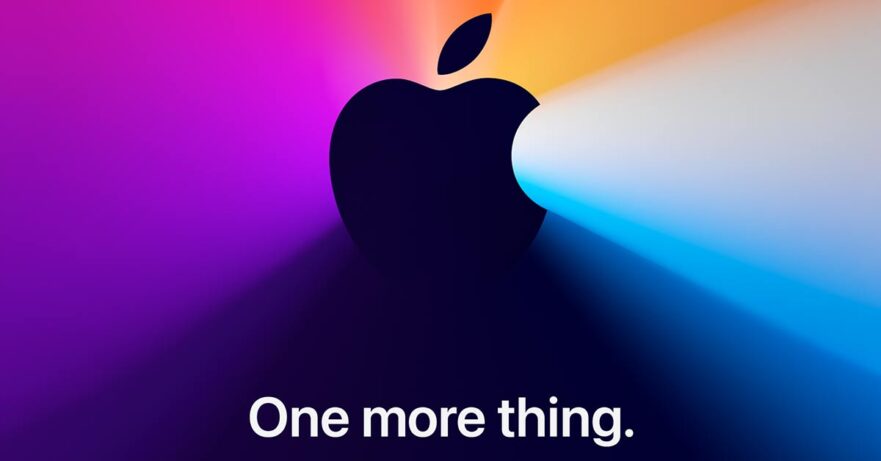Apple has sent out invites to its latest — and likely last — virtual event of 2020. The U.S. tech giant’s “One More Thing” launch has been scheduled for 10 a.m. PT on November 10 (2 a.m. November 11 in the Philippines) and will reportedly focus on the upcoming Macs with Apple-designed, ARM-based processors inside.
This is super cool. The Apple event logo in AR resembles opening and closing a MacBook.
— Neil Cybart (@neilcybart) November 2, 2020
A new MacBook powered by Apple Silicon is coming. pic.twitter.com/R6pIpJTWPC
Bye, Intel. Hello, ARM
Back at WWDC in June, Apple announced its bold move to make its own processors for the Mac, marking the end for Intel Macs in the process. The company promised to release the first computer with Apple silicon by the end of the year.
This is a big event not just for Apple, but also for the entire tech industry, so it makes perfect sense that the company decided against announcing its newest PCs alongside the iPhone 12 series. The public release of Apple’s macOS Big Sur software update is also expected to be announced during the keynote.
Sources familiar with the matter recently told Bloomberg that Apple plans to introduce three new MacBooks with Apple Silicon processors, including a 13-inch MacBook Air, a 13-inch MacBook Pro, and a 16-inch MacBook Pro. All are said to pack 5nm chips that are based on the 64-bit Apple A14 Bionic in the iPhone 12 and iPad Air (2020) models.
Apple reportedly plans to introduce three new MacBooks with Apple Silicon processors, including a 13-inch MacBook Air, a 13-inch MacBook Pro, and a 16-inch MacBook Pro
Eventually, we’ll see iMacs and Mac Pro computers with Apple Silicon, but those will come down the line. The more pressing question is, why is Apple designing its own processors and how will it make Macs run better? The definitive answers to those questions won’t come now — or soon after the launch event.
But we’ve seen what Apple can do with smartphones and tablets when it has control over the hardware and software, so we expect the new Apple-designed MacBooks to perform better and last longer before needing a recharge than their Intel-based counterparts. Perhaps more importantly, they should also be able to run iPhone and/or iPad apps from the App Store, and developing apps for Apple’s entire hardware ecosystem including computers will likely be easier under one united platform.
SEE ALSO: Apple iPhone 12 Pro: Unboxing and first impressions
If nothing else, the release of Apple Silicon Macs may drive the prices of Intel-based MacBooks to affordable levels, so if you’re looking to purchase one, you should probably wait for the new models to launch first.
Share this Post



